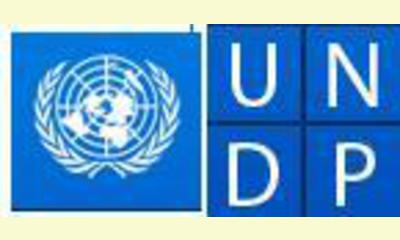|
|
Informe sobre Desarrollo Humano 2013 - El ascenso del Sur
an article by Helen Clark, Administradora, Programa de las Naciones Unidas para el Desarrollo (abreviado)
El Informe sobre Desarrollo Humano 2013: El
ascenso del Sur: Progreso humano en un mundo
diverso analiza la geopolítica de nuestros
tiempos, examinando cuestiones y tendencias
emergentes, así como a los nuevos actores que
están dando forma al paisaje del desarrollo. . .

El Informe destaca que en la última década todos
los países aceleraron sus logros en las
dimensiones de educación, salud e ingresos, según
mediciones del Índice de Desarrollo Humano (IDH);
en tanto que ningún país sobre el cual había datos
disponibles tuvo un valor del IDH más bajo en 2012
que en 2000. A medida que se registró un progreso
más rápido en países con IDH más bajo durante este
período, se produjo una notable convergencia en
los valores del IDH a nivel mundial, pese a que el
progreso no fue parejo en el interior de las
regiones y entre ellas . . .
Llegado el año 2020, según proyecciones estimadas
para este Informe, la producción económica
combinada de tres de los principales países en
desarrollo solamente (Brasil, China e India)
superará la producción total de Canadá, Francia,
Alemania, Italia, el Reino Unido y Estados Unidos.
Gran parte de esta expansión es impulsada por
nuevas asociaciones de comercio y tecnología en el
interior mismo del Sur, como lo demuestra también
este Informe.
Sin embargo, un mensaje clave incluido en este
Informe sobre Desarrollo Humano y en anteriores,
es que el crecimiento económico por sí solo no se
traduce automáticamente en el progreso del
desarrollo humano. Políticas a favor de los pobres
e inversiones significativas en las capacidades de
las personas (mediante un enfoque en educación,
nutrición, salud y habilidades de empleo) pueden
expandir el acceso al trabajo digno y brindar un
progreso sostenido.
El Informe 2013 identifica cuatro áreas
específicas de enfoque para sostener el impulso
del desarrollo: mejora de la igualdad, incluida la
dimensión de género; dotación de voz y
participación a los ciudadanos, incluidos los
jóvenes; confrontación de presiones ambientales; y
manejo del cambio demográfico. . .
Para apuntalar la riqueza de conocimiento,
experiencia y pensamiento del desarrollo en el
Sur, el Informe llama a crear nuevas instituciones
que puedan facilitar la integración regional y la
cooperación Sur-Sur. Los poderes emergentes en el
mundo en desarrollo ya son fuentes de políticas
sociales y económicas innovadoras, y cada vez son
socios más relevantes en la cooperación del
desarrollo, del comercio y de las inversiones para
otros países en desarrollo. . .
Por último, el Informe exige también una mirada
crítica a las instituciones de gobernanza mundial
para promover un mundo más justo e igualitario.
Señala estructuras desactualizadas, que no
reflejan la nueva realidad económica y geopolítica
descrita, y considera opciones para una nueva era
de asociación. También pide más transparencia y
rendición de cuentas, y resalta el papel de la
sociedad civil mundial en la defensa de estas, así
como un mayor poder de toma de decisiones para
quienes resultan más directamente afectados por
los problemas mundiales, quienes a menudo son las
personas más pobres y vulnerables de nuestro
planeta. . .
( Clickear aquí para la version inglês u aquí para la version francês)
|








|
DISCUSSION
Question(s) related to this article:
How can we get to a sustainable, peaceful economy?,
* * * * *
LATEST READER COMMENT:
Annie Leonard: How to Be More than a Mindful Consumer
The way we make and use stuff is harming the world—and ourselves. To create a system that works, we can't just use our purchasing power. We must turn it into citizen power.
by Annie Leonard
posted Aug 22, 2013
Stuff activist Annie Leonard: “Consumerism, even when it tries to embrace ‘sustainable’ products, is a set of values that teaches us to define ourselves, communicate our identity, and seek meaning through accumulation of stuff, rather than through our values and activities and our community.” YES! photo by Lane Hartwell.
Since I released "The Story of Stuff" six years ago, the most frequent snarky remark I get from people trying to take me down a notch is about my own stuff: Don't you drive a car? What about your computer and your cellphone? What about your books? (To the last one, I answer that the book was printed on paper made from trash, not trees, but that doesn't stop them from smiling smugly at having exposed me as a materialistic hypocrite. Gotcha!)
Let me say it clearly: I'm neither for nor against stuff. I like stuff if it's well-made, honestly marketed, used for a long time, and at the end of its life recycled in a way that doesn't trash the planet, poison people, or exploit workers. Our stuff should not be artifacts of indulgence and disposability, like toys that are forgotten 15 minutes after the wrapping comes off, but things that are both practical and meaningful. British philosopher William Morris said it best: "Have nothing in your house that you do not know to be useful or believe to be beautiful."
Too many T-shirts
The life cycle of a simple cotton T-shirt—worldwide, 4 billion are made, sold, and discarded each year—knits together a chain of seemingly intractable problems, from the elusive definition of sustainable agriculture to the greed and classism of fashion marketing.
The story of a T-shirt not only gives us insight into the complexity of our relationship with even the simplest stuff; it also demonstrates why consumer activism—boycotting or avoiding products that don’t meet our personal standards for sustainability and fairness—will never be enough to bring about real and lasting change. Like a vast Venn diagram covering the entire planet, the environmental and social impacts of cheap T-shirts overlap and intersect on many layers, making it impossible to fix one without addressing the others.
I confess that my T-shirt drawer is so full it's hard to close. . ...more.

|
|









